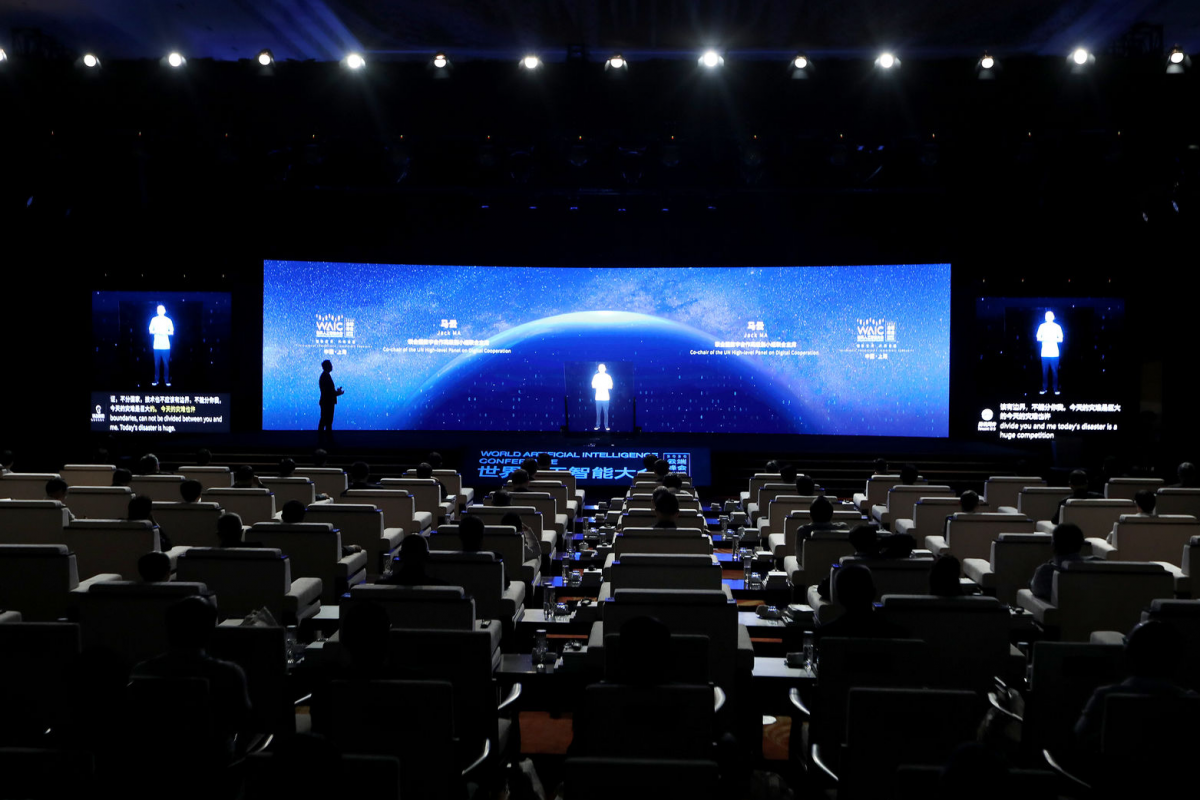Alibaba Group Holding founder Jack Ma said the COVID-19 pandemic has accelerated the adoption of artificial intelligence and digital technologies across a range of industries, including health care and farming.
“We human beings must not think too highly of ourselves,” said Ma as a projected hologram on stage at the opening ceremony of the three-day World Artificial Intelligence Conference, which kicked off online on Thursday in Shanghai. “Many things are difficult for human beings, but it’s very easy for machines.”
“The big trends in digital technology have not changed,” said Ma. “But what would have taken about 30 to 50 years to digitize, has now been speeded up to between ten and 20 years, a huge change as a result of the recent upheaval.”
Ma, who helped to ship medical supplies, such as face masks and ventilators, to more than 150 countries struggling to cope during the coronavirus outbreak, said the health crisis had forced people to innovate, and that AI had been used effectively to help doctors read CT scans more quickly and farmers to make better use of big data to monitor their crop yields.
Ma explained how Chinese technicians developed a machine powered by algorithms during the pandemic that was 60 times more efficient than a human doctor using their naked eye to detect suspected cases of COVID-19 via CT scans. He also described how farmers used remote satellite sensing technology and intelligent machines to help them interpret climate data and plan their rice farming more efficiently through an app on their smartphone.
In keeping with many other speakers at the event, Ma also stressed the need for people to set aside their differences and cooperate on AI and technology solutions, as the pandemic means we no longer have time to worry.
“Viruses don’t need visas, country borders don’t matter, and technology shouldn’t have borders,” said Ma. “Today, the accumulation of human knowledge, the ability to process information and the ability to reduce risk is more powerful than ever. But unfortunately, we lack the wisdom, and sometimes we don’t use those resources, capabilities and knowledge to enhance communication and cooperation, and sometimes we create a lot of gaps and even widen differences.”
Meanwhile, Tesla founder and fellow billionaire Elon Musk, who faced off against Ma at last year’s conference over the positives and negatives of AI also spoke on Thursday, focusing on the development of autonomous driving. (Musk has expressed fears about the potential for AI to be used for evil, such as killer robots.)
Read this: China’s ‘Tesla killer’ becomes first to use latest Nvidia AI chip
“Tesla is very close to achieving full autonomous driving,” said Musk. “I remain confident that we will have basic functionality for Level-5 autonomous driving complete this year.”
Level-5 autonomous driving is the highest level of self-driving vehicles, where there is no need for human intervention at all. An example would be a robotic taxi that works on all roads all over the world, all year around, in all weather conditions.
Apart from Tesla, Musk is focused on several other tech ventures including Space Exploration Technologies Corp, The Boring Company, and Neuralink, which is developing implantable brain-machine interfaces.
Tesla’s new Gigafactory in Shanghai started delivering electric vehicles to public customers in January, which helped the company endure a roughly seven-week shutdown of its Silicon Valley-based plant in the second quarter.
